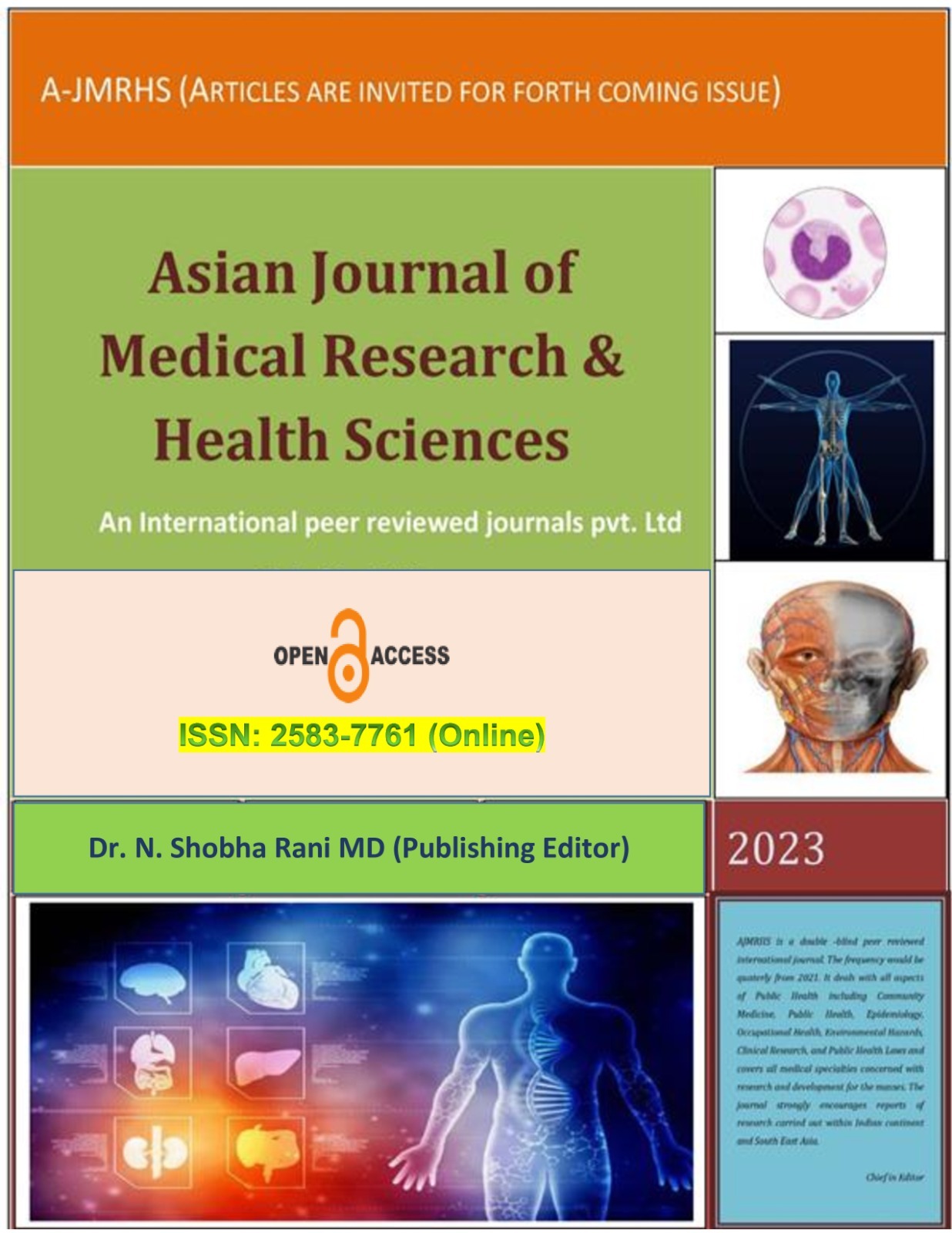Plagarism poliocy
AJMRHS maintains a zero‑tolerance stance treats … as serious ethical breaches" toward the misappropriation of others’ ideas, words, data, images, or code, whether intentional or unintentional, and treats undisclosed text recycling and duplicate publication as serious ethical breaches.
All submissions are screened at pre‑review and again pre‑acceptance using similarity detection tools and editorial assessment, with proportionate actions ranging from required revisions to rejection or post‑publication corrections/retractions.
Definitions
-
COPE: “Plagiarism ranges from the unreferenced use of others’ published and unpublished ideas, including research grant applications, to submission under ‘new’ authorship of a complete paper, sometimes in a different language.”
-
WAME: “The use of others’ published and unpublished ideas or words and/or other intellectual property without attribution or permission, and presenting them as new and original rather than derived from an existing source.”
Scope of misconduct
-
Plagiarism: Unattributed copying or close paraphrase of text, ideas, data, images, code, or methods.
-
Self‑plagiarism/text recycling: Reuse of substantial portions of one’s own published material without citation and clear justification.
-
Duplicate/overlapping publication: Submission/publication of the same or highly similar work to more than one venue without legitimate disclosure and permission.
-
Salami publication: Fragmenting one study into multiple papers with redundant content and minimal incremental knowledge.
-
Image/data misuse: Reuse without attribution, or manipulation that alters meaning or misleads.
Screening process and thresholds
-
Every submission is checked with similarity detection software, with editorial review of reports to distinguish legitimate overlap (methods, references, standard phrases) from misconduct.
-
Indicative thresholds after exclusions: overall similarity above 15% or any single‑source match above 2% prompts editorial scrutiny; 5–30% problematic overlap generally requires correction and resubmission; above 30% results in rejection with guidance to rewrite before fresh submission.
-
Figures, tables, images, and graphical abstracts are screened; authors may be asked for originals and unprocessed data files.
Editorial decisions and actions
-
Pre‑publication:
-
Minor unattributed overlap: require revisions with proper quotation, paraphrasing, and citation.
-
Substantial or systemic overlap, duplicate submission, or deceptive reuse: reject; editors may notify institutions or funders as warranted.
-
-
Post‑publication:
-
Corrections or editorial notes for limited issues not affecting conclusions; expressions of concern or retractions for serious breaches or where the record is compromised.
-
Acceptable prior dissemination
-
Preprints, theses, dissertations, and conference abstracts/posters are allowed if the journal submission is substantially developed, clearly cites the prior dissemination, and author rights permit reuse.
-
Translated or expanded versions must cite the original and include documented permissions where required.
Author responsibilities
-
Submit only original work; quote, paraphrase, and cite sources appropriately; secure permissions for third‑party content before submission.
-
Disclose related or overlapping manuscripts (submitted, in press, or published) and provide copies on request.
-
Retain raw data, image originals, and analysis files; provide them to editors on request for verification.
Appeals and reporting concerns
-
Authors may appeal plagiarism‑related decisions with a point‑by‑point response; appeals are handled by an editor not involved in the initial decision.
-
Reader reports of suspected plagiarism are investigated promptly; outcomes are documented on the article record when corrective actions are taken.
Institutional notification
-
In cases of confirmed serious misconduct, AJMRHS may notify the corresponding author’s institution, funders, or relevant bodies, consistent with due process and applicable guidance.
References
-
Committee on Publication Ethics (COPE): Definition of plagiarism. Available from https://publicationethics.org/
-
World Association of Medical Editors (WAME): Publication ethics policies for medical journals. Available from http://www.wame.org/resources/ethicsresources/publication-ethics-policies-for-medical-journals/.




